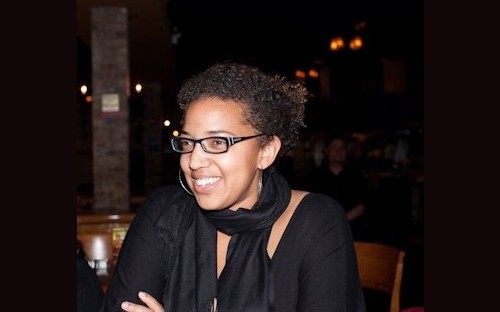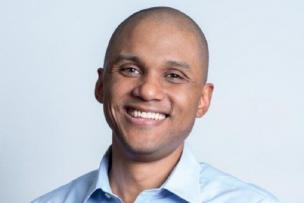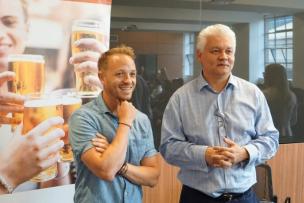Microsoft was founded in 1975 by Harvard's most successful dropout Bill Gates, and his childhood buddy Paul Allen.
After Allen convinced Gates to drop out of Harvard, Gates in turn convinced his friend Steve Ballmer to drop out of Stanford and work with them. Ballmer is now Micosoft's CEO!
Their IPO in 1986 reportedly created three billionaires and made 12,000 Microsoft employees millionaires. The rest is history.
In 2007, more than thirty years after he dropped out, Gates returned to Harvard and received an honory doctorate. He described his time at University as "transformative".
This week, we hear from Cassandra Young, University Staffing Consultant at Microsoft, based in Seattle, WA.
Cassandra is going to tell you about MACH, the company's prestigious professional development programme for MBAs and grads, and breakfasting with the CEO.
What areas of Microsoft do you hire MBAs for?
We have a large breadth of roles for MBAs to consider. We hire across multiple business groups, including Office; Windows; Server & Tools; Xbox; Sales, Marketing, and Services Group (SMSG); Yammer, and Skype. The roles generally fall within Marketing, Finance, Sales, Supply Chain, and Operations.
Can you tell us a bit about Microsoft Academy of College Hires (MACH)?
The Microsoft Academy of College Hires (MACH) program is designed to help onramp recent university and MBA graduates.
The MACH program helps new college hires build lasting connections within the Microsoft community and provides unique training opportunities to accelerate the onboarding process. MBA hires are able to gain additional exposure to leaders within the company through training and selective conference opportunities.
One of the most energizing and informative events is the Microsoft Global Exchange (MGX) conference. MGX is our largest annual sales and marketing conference, and our college hires are able to attend within their first year at Microsoft. Through the MACH program, the level of support that Microsoft invests in college hiring, onboarding, and training is transparent and palpable.
What business schools do you target for MBA hires?
We hire globally, actively recruiting at some of the most competitive MBA programs in the United States, Europe, and Asia.
What are the 'perks' and benefits of working at Microsoft?
The best perk about working at Microsoft is the people. Microsoft employees are incredibly bright, driven, and passionate. There is a huge amount of trust amongst colleagues and between managers and their direct reports.
There is also a strong sense of altruism. You can see it in the way people collaborate to identify solutions to a challenging project, or in the level of involvement of our employees in Microsoft’s annual Giving Campaign.
Last year marked the 30th anniversary of our Giving Campaign and coincided with Microsoft reaching 1 billion dollars in employee charitable contributions since the campaign’s inception. Being a part of a caring community is a strong and rewarding incentive.
As for the more tangible perks, Microsoft has one of the most competitive benefits packages available in the industry. Microsoft really values the whole person and you can see that in the type of on-campus amenities that Microsoft provides. Employees have access to a Wellness Center where employees can take advantage of many services offered by caring medical practitioners.
Our campus is riddled with basketball courts, soccer fields, and hiking trails in the event that you need to recharge during the workday. We also have a Commons Area that houses a post office, spa, bike/ski shop, restaurants, and many other amenities.
In terms of experience, what are you looking for in MBA candidates?
One of the first things that we look for in MBA candidates is a passion for technology, and more specifically a passion for Microsoft. This doesn’t necessarily mean that candidates need to have majored in Computer Science or know how to code, rather a more accurate assessment is whether the candidate is passionate about what technology can do to improve the lives of others.
Candidates must have the aptitude to communicate effectively with senior leaders and engineers and an ability to think strategically and work collaboratively are requisite.
Microsoft places a high level of trust in our MBA hires, so candidates must be confident in their ideas and comfortable with ambiguity. It’s a fun, dynamic, fast-paced workplace and we’re looking for candidates that have the aptitude, drive and discipline to thrive in this environment.
Do you have an internship program for current MBAs?
We do have a summer internship program available to current MBAs. We invite approximately 70 MBAs from top business schools across the globe to spend 10 to 12 weeks at Microsoft’s corporate headquarters in Redmond, WA. The students work on projects that will have a real and immediate impact on the business.
The internship is also structured to ensure that the interns have a high level of exposure to senior executives, including breakfast with Steve Ballmer.
The work that we do here at Microsoft is challenging and impactful, but we also have fun. We want our interns to experience work life balance as well, so we plan social activities such as a boat cruise on the Puget Sound or a group outing to a Mariners game.
What's a typical starting salary for an MBA hire?
Microsoft offers competitive pay and benefits.
Microsoft is often perceived as having a very corporate work culture in comparison to other tech companies founded recently. What is the office environment and culture like at Microsoft in 2013?
In celebration of International Women’s Day, Microsoft recently held a multigenerational panel which afforded employees the opportunity to hear varying perspectives on leadership and professional growth. During this panel, a General Manager from one of our business groups shared a story that I think best articulates the Microsoft culture.
The GM mentioned that there was an incredibly complex problem that her group was trying to solve, so she called an impromptu all hands meeting. This meeting had participants from all levels and varying functions, but it was universally understood that everyone on the team deserved a seat at the table and had valuable insight to share. That’s the culture… trust, drive, and collaboration.
What I’ve found is that at Microsoft it’s not about your title, face-time with your manager, what you wear, or where you do your work. The culture is about being confident enough to share your ideas and rolling up your sleeves to do the work. It’s about self-improvement and making those around you better.
RECAPTHA :
b0
8f
3e
7f







